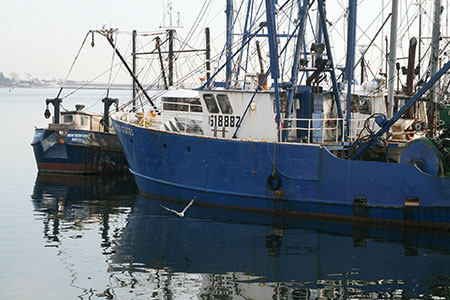Edward Tekwa et al. Publish a Study on Why Fish Conservation Succeeds or Fails

An average human consumes 20kg of marine fish per year, so our health and economy depends heavily on marine conservation. But 30% of marine fisheries are overharvested, and it is not clear why conservation sometimes fails and other times succeed. Tekwa et al. show that many cases of chronic overharvesting are due to institutions adapting too slowly - in particular highly productive and costly-to-catch species are paradoxically most vulnerable to such a trap, even though conservation is an alternative stable state. Data from 217 global fisheries support the mathematical model's predictions, suggesting that managers must confront rebuild challenges and opportunities that could lead to self-perpetuating conservation.
Edward Tekwa is a postdoc at Rutgers' Department of Ecology, Evolution, and Natural Resources working with Malin Pinsky.
Publication in PNAS (DOI: 10.1073/pnas.1806852116)
Story in Princeton Environmental Institute
More news releases about this publication, tracked by Altmetric.
Janyary 2019


